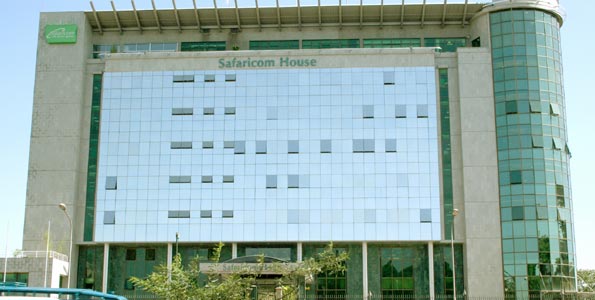
 Safaricom HQ/FILE
Safaricom HQ/FILE
Giant telecommunications firm Safaricom has been ordered to pay more than Sh55 million in compensation to 17 former employees after the Employment and Labour Relations Court found that they were unlawfully dismissed in 2018.
Justice Mathews Nduma Nderi ruled that the employees, all serving as Area Sales Managers (ASMs), were wrongfully terminated after being blamed for failures in a flawed electronic subscriber registration project piloted by the company.
While the court noted that the dismissal might not have been a deliberate move to violate the rights of the employees, it was unfair.
“There is insufficient evidence to prove that the respondent (Safaricom) deliberately violated the constitutional rights of the Claimants,” the judge noted.
However, he emphasized that the termination process itself was unfair, stating that the workers were subjected to “impossible standards” and not given a fair opportunity to defend themselves.
The court found that Safaricom engaged in unfair labour practices by summarily dismissing the employees without acknowledging the operational deficiencies of the project, which the employees had repeatedly flagged during its pilot phase.
The case stemmed from the rollout of a Huawei Y311 device-based digital subscriber registration system initiated by Safaricom in October 2016.
Despite feedback from the ASM team highlighting deficiencies in the project, Safaricom proceeded with a national rollout of over 90,000 devices.
In January 2018, employees were asked to account for the devices, many of which had been distributed to agents and dealers.
Testimony presented by the employees indicated that they responded to audit queries and provided reconciliation statements, but received no formal feedback from the company.
In May 2018, the workers were summoned to Safaricom’s headquarters by the Risk Division, where they claim they were coerced into recording statements.
A month later, they were served with summary dismissal letters.
“All 39 Area Sales Managers involved in the project were dismissed on June 28, 2018,” court records show, although only five were later reinstated.
The court found no evidence of discrimination in the reinstatements. While the judge dismissed claims of discrimination and violations of constitutional rights, it awarded the employees compensation for unlawful dismissal and payment in lieu of notice.
However, claims for housing allowance, per diem, future earnings, and aggravated damages were dismissed for lack of evidence.
Each of the 17 claimants was awarded the equivalent of ten months’ gross salary as compensation, along with one month’s pay in lieu of notice. The awards ranged from Sh935,000 to over Sh4.2 million per claimant, depending on their salary scale.
The court also ordered that the amount be paid with interest at court rates from the date of the judgment delivered on July 17, 2025, until full payment and directed Safaricom to bear the costs of the suit.
In defence, Safaricom had argued that the dismissal was justified due to the claimants' negligence, which allegedly resulted in financial losses of Sh544.5 million in purchasing the devices and potential regulatory non-compliance.
Testifying for the company, Senior Manager for Fraud Detection Emmanuel Dibo stated that the ASMs failed to ensure proper usage of the devices, with some being found on competitor networks or registered under individual dealers rather than being used for Safaricom’s subscriber registration.
Nonetheless, the court ruled that the failure of the project was not attributable to the employees’ actions but rather to systemic and operational deficiencies that had been repeatedly raised by the employees to the company.
"The claimants were subjected to the same unfair and impossible work conditions by the respondent and were wrongly accused of negligence when failures of the project were as a result of deficiencies in the operational procedures, policies, and systems of the project," the judge said.
Safaricom is now required to compensate all 17 claimants, bringing closure to a long-standing employment dispute that dates back over seven years.


















